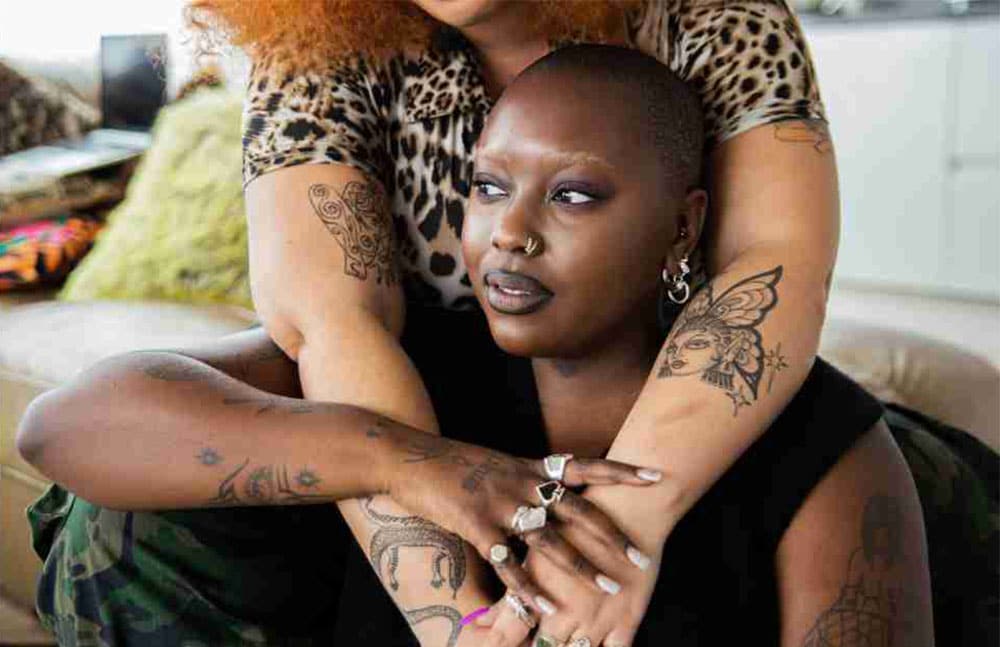19+ in Alabama or Nebraska
Everyone's welcome to join a clinical trial—no experience required.

Featured clinical trials

Major depressive disorder
Learn more about a clinical study for adults diagnosed with depression.

Lung cancer screening
Help develop a test that detects lung cancer early, when more treatment options are available.
All clinical trials
19+ in Alabama or Nebraska
Medical breakthroughs wouldn’t be possible without clinical trials.
By including people of various communities, ages, races, genders and ethnicities, researchers can better understand how people respond to treatments. This helps to ensure that medical advancements are safe, effective, and accessible, ultimately leading to more equitable healthcare for all.
Joining a clinical trial doesn’t mean you’ll be a guinea pig or receive low-quality care.
Patient care and safety is prioritized above all else. You’re able to stop participation at any time, and you’ll never be treated as a lab rat or guinea pig.
Here are just a few of the additional benefits research participants experience by joining clinical trials:
Better understand your health & condition
Access to the latest treatments & technology
Condition-specific care from trusted sources
Directly contribute to medical breakthroughs
Do you have questions about clinical trials or want to share your participant story?
We want to hear from you! Email us at ClinicalTrials@Walgreens.com or connect with us on any of the social channels below.
Note: This contact form is for general inquiries only. Do not use the form to share medical information or communicate about specific ongoing studies. Contact the research team directly if you have questions about a specific study.
Clinical trials are research studies that look at new ways to prevent, detect or treat diseases. They rely on human volunteers, known as participants, and aim to find out if a new medical approach is safe and effective.
Clinical trials often test new drugs or new combinations of drugs, new surgical procedures or devices, or different ways to use existing treatments. Clinical trials can also test other aspects of care, such as ways to improve the quality of life for people with chronic conditions.
People of all ages, genders, races and ethnic groups can volunteer to participate, and all participants must qualify for a study before joining a clinical trial. Each clinical trial has specific eligibility criteria, which help identify appropriate participants and ensure their safety. Eligibility criteria consist of both inclusion criteria (required for participation) and exclusion criteria (which prevent participation). These criteria are based on factors such as age, gender, disease type and stage, treatment history and other medical conditions.
Some studies look for patient volunteers who have a known health condition and can help improve understanding, diagnosis or treatment, while others need healthy volunteers who don’t have significant health problems and may be needed to help test new treatments.
Each clinical trial has a unique set of requirements and screening process. Before joining a trial, you’ll receive an informed consent form detailing the study’s purpose, duration, compensation, contact information, and required tests or procedures. The form also explains the study’s known benefits and risks and can help participants make an informed decision about whether to join a study.
Study participation is a personal decision. The research team will be prepared to answer questions to help you fully understand what to expect before, during and after the study
Many clinical trials for new drugs or medical devices are conducted in a series of steps called phases. Each phase has a different purpose and helps researchers answer different questions.
- Phase 1 – Testing begins with a small group of people (typically 20–80) to help evaluate safety and identify side effects.
- Phase 2 – More people are included (typically 100–300) to determine effectiveness and continue evaluating safety.
- Phase 3 – The new drug or treatment is given to a larger group of people (typically 1,000–3,000) to help confirm effectiveness, monitor side effects and compare it with current treatments.
- Phase 4 – After a drug or device is approved by the FDA and made available to the public, researchers continue monitoring its safety and effectiveness in the general population.
A clinical trial sponsor is the person, institution, company or organization responsible for initiating, managing or financing the clinical trial. A study’s principal investigator (PI), often a medical doctor, works closely with the clinical research coordinator (CRC) to lead the trial and help ensure compliance and safety. The PI and CRC typically work for the sponsor and leads a team of research staff that could include doctors, nurses, technicians and other healthcare professionals. Members of the research team regularly monitor participants’ health to determine the study’s safety and effectiveness.
Walgreens has partnered with trial sponsors and researchers to help make clinical trials more accessible. Browse our active clinical trials and select “Learn more” to see how you can get involved.
Insurance is generally not required to participate in a clinical trial.
Participants may be paid, but the amount varies based on the study. Some clinical trials will provide compensation for the time and effort involved with participation, and reimbursement for costs associated with research-related travel, such as parking fees or meals.
Yes. You can decide to end your participation and withdraw at any time. Just tell the study researcher if you wish to stop being in the study. You don’t need to give a reason why you want to stop participating.
Clinical trials involve some level of risk to participants, but there are numerous safeguards and regulations in place to ensure studies are as safe as possible.
Before joining a trial, you’ll receive information about potential risks and benefits, which can help you make an informed decision about whether to participate.
Each trial follows a strict study plan called a protocol, which describes how the research will be performed. Researchers also use a group of experts, known as an Institutional Review Board (IRB), in most clinical trials to make sure participant risk is acceptable and as low as possible. Some studies that take place in the United States or are government-funded must follow rules set by other U.S. agencies to help manage risk and protect research participants. These agencies include the Office for Human Research Protections (OHRP) and the Food and Drug Administration (FDA).
Doctors, nurses and other healthcare professionals may monitor your health during the trial. They will carefully document any side effects and closely monitor for adverse events, which are unfavorable changes in health. All outcomes are investigated to determine if they’re related to the trial or treatment.
There are different types of clinical trials; they don’t always test medicine or include a placebo, which is a pill or substance that has no therapeutic effect.
Placebos aren’t used in research if an effective treatment is already available or if the lack of effective therapy would put a person at risk. Participants will always be notified if a trial uses a placebo during the informed consent process.
Clinical trial participant privacy and confidentiality are protected by law. For example, trials that use or disclose a participant’s protected health information (PHI) for research purposes must be conducted in accordance with the Privacy Rule of the Health Insurance Portability and Accountability Act (HIPAA).
During the informed consent process, participants will receive information on personal information collected during the trial, how it will be used, who will have access to the information, and rights regarding personal information.
Factors like age, race and gender influence the risk and likelihood of developing a disease and responses to treatment. By including more diverse groups of people in clinical trials, we can better understand the therapy effectiveness and safety for the broader population.
Better understand how you can engage with clinical trials, no matter where you are in their health journey, from trusted sources.
National Institutes of Health: Clinical Research Trials and You
Patient Advocate Foundation: Education Resource Library
The Center for Information and Study on Clinical Research Participation: Education Center
NoiseFilter: "Clinical Trials: The Heart and Soul of Science" (video)
NoiseFilter: "Clinical Trials: Lights, Camera, Take Action!" (video)
University at Buffalo Clinical and Translational Science Institute: "Sofia Learns About Research" (children's activity book)
Walgreens Clinical Trials for sponsors: Clinical Trials for Healthcare Companies
https://www.nih.gov/health-information/nih-clinical-research-trials-you/basics
https://www.nia.nih.gov/health/clinical-trials-and-studies/what-are-clinical-trials-and-studies
https://www.nhlbi.nih.gov/research/clinical-trials/participating
https://www.nih.gov/health-information/nih-clinical-research-trials-you/glossary-common-terms
https://clinicaltrials.gov/study-basics/learn-about-studies
https://clinicaltrials.gov/study-basics/glossary
https://www.hhs.gov/hipaa/for-professionals/special-topics/research/index.html
https://www.nimhd.nih.gov/resources/understanding-health-disparities/diversity-and-inclusion-in-clinical-trials.html
In a conversation with Ramita Tandon, Walgreens’ Chief Clinical Trials Officer, we explore the company’s cutting-edge strategies to maximize its expansive pharmacy network for clinical trials conducted at retail pharmacies. This interview illuminates the ways in which Walgreens integrates technological advancements and engagement tactics to revolutionize the process of enrolling participants and decentralizing clinical trials.
Collaborating with community partners, we design and build outreach and engagement activations to break down barriers e.g. the lack of awareness about trials, mistrust of research, and logistical obstacles that prevent equitable access across sub-groups.
The 2024 SCOPE Summit, a pivotal event in clinical trials, showcased innovative strategies to transform patient recruitment and trial conduct. At the forefront of these discussions was John Campbell, Head of Decentralized Trials for Walgreens, who shared profound insights
Less than two years after entering the clinical trials business, Walgreens has made strides in increasing diverse representation in pharmaceutical trials, according to Ramita Tandon, the company’s chief clinical trials officer. The retail pharmacy giant opened a clinical trials arm in June 2022 with the goal of diversifying trial participants, which have historically been overwhelmingly white and male.
Clinical trial recruitment has historically been centered in larger urban areas near established medical institutions, leaving out the nearly 61 million Americans that live in rural locations where healthcare access is limited. Walgreens is proud to be an industry leader in increasing access to clinical research across the country, and is committed to reaching vulnerable and marginalized populations that are often excluded from
Diverse participation in clinical trials is critically low. At this year’s Black Women’s Expo, Walgreens sponsorship centered on educating the community and sparking change for better health outcomes.
There are several reasons for a lack of diversity among trial participants. It can have life-and-death consequences for people of color.
In this session at DIA, John Campbell, head of decentralized trials, Walgreens began with emphasizing that much of industry does not yet understand the role of pharmacy in clinical trials.
Retail pharmacy giant Walgreens inked another partnership to recruit participants for research as it continues to build out its clinical trials business. The company signed a deal with biotech startup Freenome to advance clinical trials of its blood-based tests for the early detection of cancer.
The commitment of pharmacy to address clinical trials has been a recurring topic this week. Craig Lipset was joined by Kendal K. Whitlock, MPH, Head of Digital Optimization, RWE Clinical Trials from Walgreens to discuss the state of the industry, commitment to the field, and progress to-date.
In the digital age, technology has become an important tool to improve involvement in clinical trials. Watch this discussion with Kendal Whitlock, Head of Digital Operations at Walgreens Boot Alliance
Walgreens Clinical Trials Events
Leveraging rich real world data (RWD), Walgreens delivered patient referrals that improve on the national averages of diverse participation, also demonstrating that our referrals are 20% more likely to enroll in study compared to other recruitment providers' referrals.
Walgreens leveraged rich and diverse real world data (RWD) and was able to deliver referrals that exceeded the targeted goal of our study partner by 23%, all within a two-week recruitment period.
Walgreens identified and engaged the right patients using our unparalleled RWD to enable a significant recruitment of Black/African American (17%) and Hispanic/Latino (19%) population in this clinical trial. These results are a significant improvement when compared to nationwide historical averages of clinical trial participation (as of 2020 of 8% and 11% respectively).
Walgreens leveraged their unparalleled real-world data insights to identify eligible patient populations within 20 miles of study sites.
Walgreens leveraged our unparalleled patient insights and community presence to identify and engage potential participants so efficiently that we outperformed other recruitment partners--64% of qualified referrals and 62% of randomized patients.
You're leaving Walgreens
Any information you provide will be subject to our partner’s privacy and security policies.
You're leaving Walgreens
Any information you provide will be subject to our partner’s privacy and security policies.
You're leaving Walgreens
Any information you provide will be subject to our partner’s privacy and security policies.
You're leaving Walgreens
Any information you provide will be subject to our partner’s privacy and security policies.
You're leaving Walgreens
Any information you provide will be subject to our partner’s privacy and security policies.
You're leaving Walgreens
Any information you provide will be subject to our partner’s privacy and security policies.
You're leaving Walgreens
Any information you provide will be subject to our partner’s privacy and security policies.
You're leaving Walgreens
Any information you provide will be subject to our partner’s privacy and security policies.
You're leaving Walgreens
Any information you provide will be subject to our partner’s privacy and security policies.
You're leaving Walgreens
Any information you provide will be subject to our partner’s privacy and security policies.
You're leaving Walgreens
Any information you provide will be subject to our partner’s privacy and security policies.
You're leaving Walgreens
Any information you provide will be subject to our partner’s privacy and security policies.
You're leaving Walgreens
Any information you provide will be subject to our partner’s privacy and security policies.
You're leaving Walgreens
Any information you provide will be subject to our partner’s privacy and security policies.
You're leaving Walgreens
Any information you provide will be subject to our partner’s privacy and security policies.
You're leaving Walgreens
Any information you provide will be subject to our partner’s privacy and security policies.
You're leaving Walgreens
Any information you provide will be subject to our partner’s privacy and security policies.
You're leaving Walgreens
Any information you provide will be subject to our partner’s privacy and security policies.
You're leaving Walgreens
Any information you provide will be subject to our partner’s privacy and security policies.
You're leaving Walgreens
Any information you provide will be subject to our partner’s privacy and security policies.
You're leaving Walgreens
Any information you provide will be subject to our partner’s privacy and security policies.
You're leaving Walgreens
Any information you provide will be subject to our partner’s privacy and security policies.
You're leaving Walgreens
Any information you provide will be subject to our partner’s privacy and security policies.
You're leaving Walgreens
Any information you provide will be subject to our partner’s privacy and security policies.
You're leaving Walgreens
Any information you provide will be subject to our partner’s privacy and security policies.
You're leaving Walgreens
Any information you provide will be subject to our partner’s privacy and security policies.
You're leaving Walgreens
Any information you provide will be subject to our partner’s privacy and security policies.
You're leaving Walgreens
Any information you provide will be subject to our partner’s privacy and security policies.
You're leaving Walgreens
Any information you provide will be subject to our partner’s privacy and security policies.
You're leaving Walgreens
Any information you provide will be subject to our partner’s privacy and security policies.
You're leaving Walgreens
Any information you provide will be subject to our partner’s privacy and security policies.
You're leaving Walgreens
Any information you provide will be subject to our partner’s privacy and security policies.
You're leaving Walgreens
Any information you provide will be subject to our partner’s privacy and security policies.
You're leaving Walgreens
Any information you provide will be subject to our partner’s privacy and security policies.
You're leaving Walgreens
Any information you provide will be subject to our partner’s privacy and security policies.
You're about to enter W en español
en Español
Al elegir continuar, se le dirigirá a la página en inglés de Walgreens.com. Puede regresar a W en español cambiando su preferencia de idioma.
